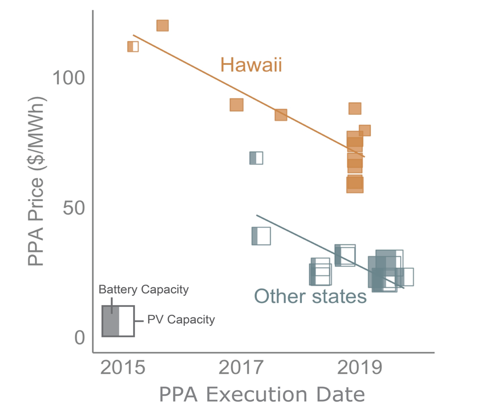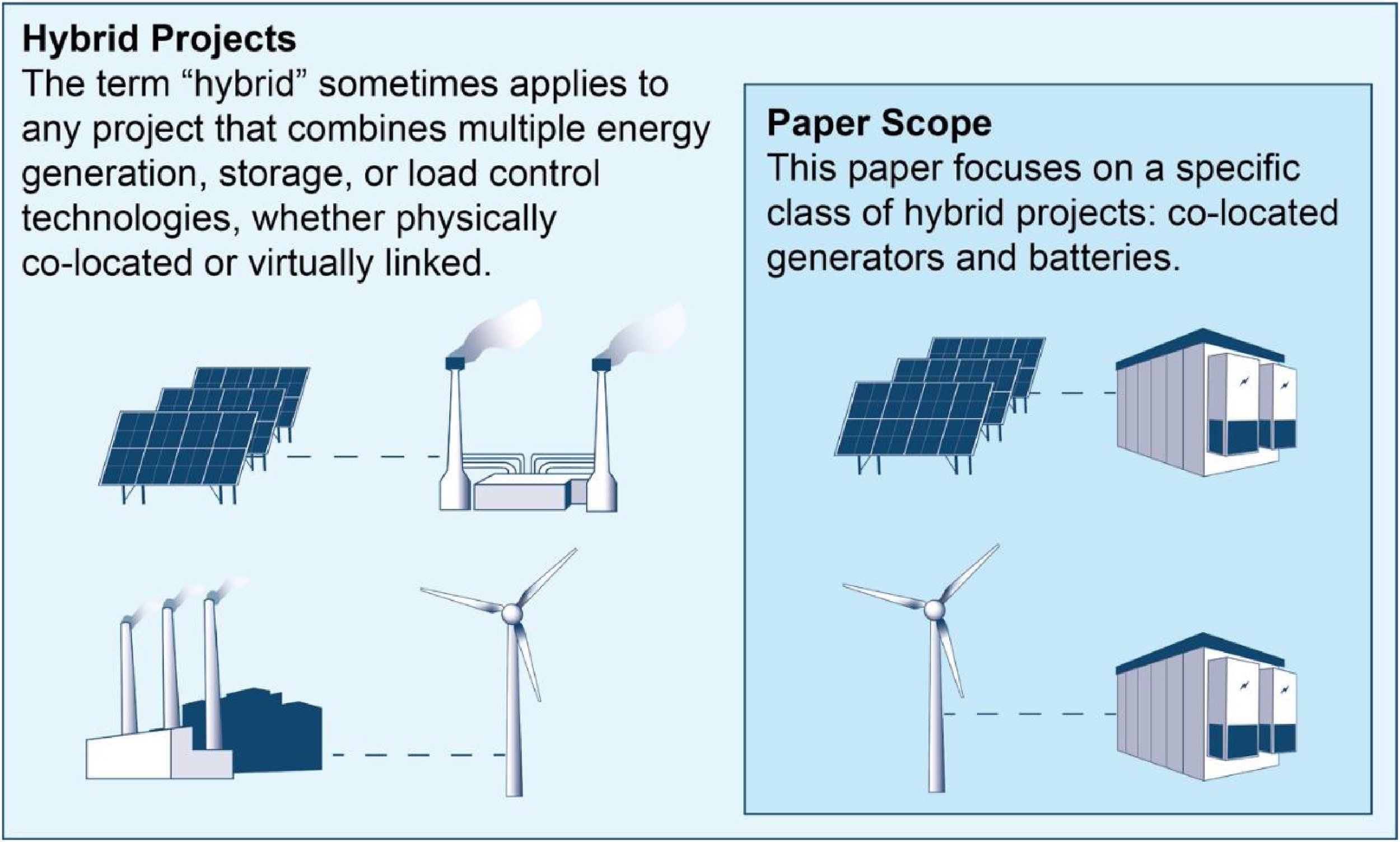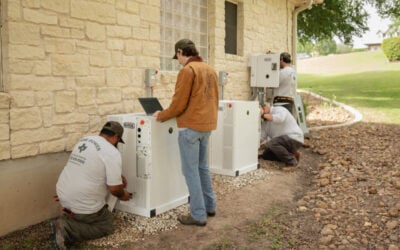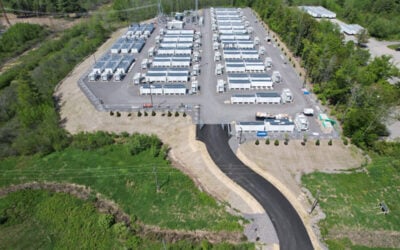
With a quarter of all solar project proposals in the US including batteries, transmission grid operators across the country are taking a variety of steps to evaluate the role that can be played in wholesale electricity markets by hybrid power plants – defined as generation coupled with energy storage.
A study produced by the Lawrence Berkeley National Laboratory and the Electric Power Research Institute (EPRI), found that the US already has 4.6GW of utility-scale hybrid resource capacity online, with a further 14.7GW in the “immediate development pipeline”.
Furthermore, in total a massive 69GW in total sit in the interconnection queues of various Regional Transmission Organisations (RTOs) and Independent System Operators (ISOs), the bulk transmission operators in the US tasked with ensuring reliability and affordability of electricity supply around the country. In those interconnection queues, around 4% of all wind projects proposed in the US are to be paired with batteries, while a much higher proportion of all proposed solar projects are in combination with batteries.
With increasing amounts of variable renewable energy (VRE) being deployed and added to the grid energy mix in the US requiring flexibility resources, the authors of that report which is to be published in the June 2020 edition of the Electricity Journal, recognise that energy storage is one such flexibility resource that can be used.
Try Premium for just $1
- Full premium access for the first month at only $1
- Converts to an annual rate after 30 days unless cancelled
- Cancel anytime during the trial period
Premium Benefits
- Expert industry analysis and interviews
- Digital access to PV Tech Power journal
- Exclusive event discounts
Or get the full Premium subscription right away
Or continue reading this article for free

Hybrid values being evaluated across US and worldwide
It is also striking that the EPRI and Lawrence Berkeley National Laboratory experts also discovered that the costs of adding a 4-hour duration battery to a solar plant can be outweighed by the potential revenues to be generated in wholesale markets. However, the current market design of many wholesale markets does not enable widespread integration or market participation in wholesale markets in many cases, the authors note.
The US Department of Energy appears to have recognised the growth of the hybrid power plant phenomenon and has scheduled a technical conference on the topic to take place this summer, as Energy-Storage.news recently reported. For the purposes of ease of definition, the EPRI-Lawrence Berkeley Lab report, as well as the DOE conference, focus on hybridisation of solar and wind with the addition of battery energy storage, although hybrids can encompass numerous other definitions, such as the newer global advent of wind-solar-storage hybrid projects, or even hybrid energy storage projects that use the different capabilities of lithium-ion and flow batteries, for example.
The paper – which was itself part-funded by the DoE – makes for fascinating reading and is certainly recommended, pointing out both the pros and sometimes cons of combining batteries and renewable generation. Earlier this month, the US national Energy Storage Association put out a policy summary of how initiatives to integrate hybrid resources are proceeding in the US’ organised wholesale markets which are run by seven regional ISOs and RTOs, as well as in the Electricity Reliability Council of Texas (ERCOT) service area.
Basically, different levels of progress have been made in each service territory of the seven: the California Independent System Operator (CAISO), New York Independent System Operator (NYISO), Electric Reliability Council of Texas (ERCOT), Mid-continent Independent System Operator (MISO), PJM Interconnection, South-West Power Pool and Independent System Operator New England (ISO-NE). Progress ranges from more informal conversations in some, to the creation of working groups and initiatives to value hybrids in others, to the ways that hybrid resources can meet the aims of FERC Order 841 through which national regulator FERC has ordered the different groups to incorporate energy storage (including behind-the-meter) into wholesale markets. See the Energy Storage Association’s policy summary, which includes links, here.
Solar Media’s new Digital Summits series has been launched to provide critical market insights, intelligence and networking opportunities to maintain our industries’ momentum. Running throughout May and June, the Digital Summits will deliver the full live event experience to your own home.
Energy Storage Digital Series: 11-15 May. See here for more information on how to take part





